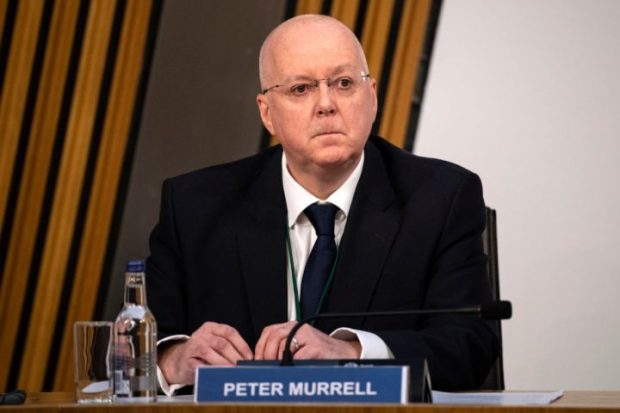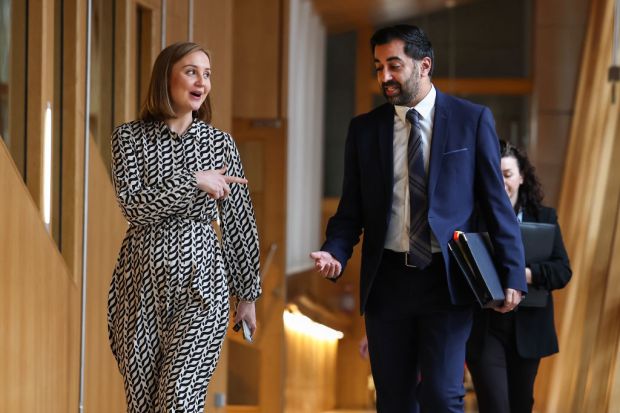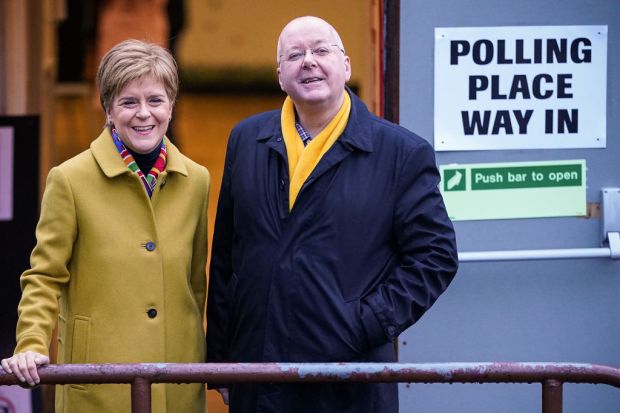A common refrain from opponents of the Scottish National party is that ‘the SNP is not Scotland’. But it often seems they haven’t got the message, especially when Nationalist activists take it on themselves to stand guard on the border against the plague-ridden English.
This week, the people who may really wish they’d done more to police the borders between themselves and the SNP are none other than grassroots separatists in the ‘Yes movement’.
If you missed this story, the long and short of it is that a few years ago the SNP went on a fundraising drive. They secured hundreds of thousands of pounds in donations on the basis that the cash would go into a ring-fenced fighting fund to wage the next independence referendum.
Cut to today and there is no sign of any such fund in the SNP’s accounts. The party is alleged to have spent it on other things, including office costs. Several of the party’s financial officers have previously resigned after the party allegedly refused to give them access to the books. Police Scotland are investigating fraud allegations. The SNP reject any claims that donations earmarked for a second independence referendum campaign were spent on legal fees and refurbishing the party’s headquarters, and disputed that financial officers were unable to access the information they needed.
This story is dangerous for the Scottish government though. Not just because of the potential prospect of criminal charges, but because it exposes the fundamental tension between the SNP as an institution and Scottish nationalism as a movement.
Whilst the former has always been, and for now remains, the best vehicle for the hopes of the latter, the party nonetheless has its own institutional incentives — and they don’t always point towards independence.
By securing a stranglehold on power in Edinburgh, it generates salaries, sinecures, and status for a huge number of SNP politicians and staffers, as well as granting huge influence over ‘civic Scotland’ that creates even more opportunities for power and spoils. They are understandably unwilling to jeopardise this.
Those who accuse Sturgeon et al of pursuing ‘independence at all costs’ therefore give the party too much credit. The SNP might prioritise the breaking-up of the United Kingdom ahead of school performance or NHS waiting times — but not of keeping hold of power and its comforts.
If the party really has sunk the referendum fund on shiny new offices, it would symbolise these priorities perfectly.
However, the SNP owes its hegemonic position in Scottish politics in part to having effectively transformed the 2014 ‘Yes’ movement into electoral support, and since then Sturgeon has worked hard to hold her coalition together with the promise that a second vote is always just over the next horizon.
Whilst Alex Salmond and his ‘Alba party’ didn’t manage to carve off the hardcore separatist vote as he might have hoped, the revelation that the SNP leadership really don’t think a referendum is likely anytime soon could dislodge more of their voters, as well as accelerating the conflict inside the party. It is telling that the complaints about the missing fund have come from other Nationalists.
Sturgeon and other senior SNP members undoubtedly want independence. But if they conclude they can’t win it, one can see them settling for a future in which they are simply the party of government in devolved Scotland: manufacturing grievances, deflecting blame, spending fiscal transfers, and distributing spoils.
There are much less comfortable forms of failure — just ask the Catalans. The true believers amongst the separatist grassroots, which presumably still includes plenty of SNP activists, would happily hazard them for one more doomed charge. Their party evidently will not.
The question is, what happens when Sturgeon can no longer string her activists on? Can the SNP effect a pivot to becoming a Fianna Fáil-style machine party if the movement on which it has built its success schisms? And will the First Minister, who by the next Holyrood election will have been in post over a decade, really fancy fighting those battles if she isn’t going to deliver independence?
<//>
Got something to add? Join the discussion and comment below.
Get 10 issues for just $10
Subscribe to The Spectator Australia today for the next 10 magazine issues, plus full online access, for just $10.



















Comments
Don't miss out
Join the conversation with other Spectator Australia readers. Subscribe to leave a comment.
SUBSCRIBEAlready a subscriber? Log in